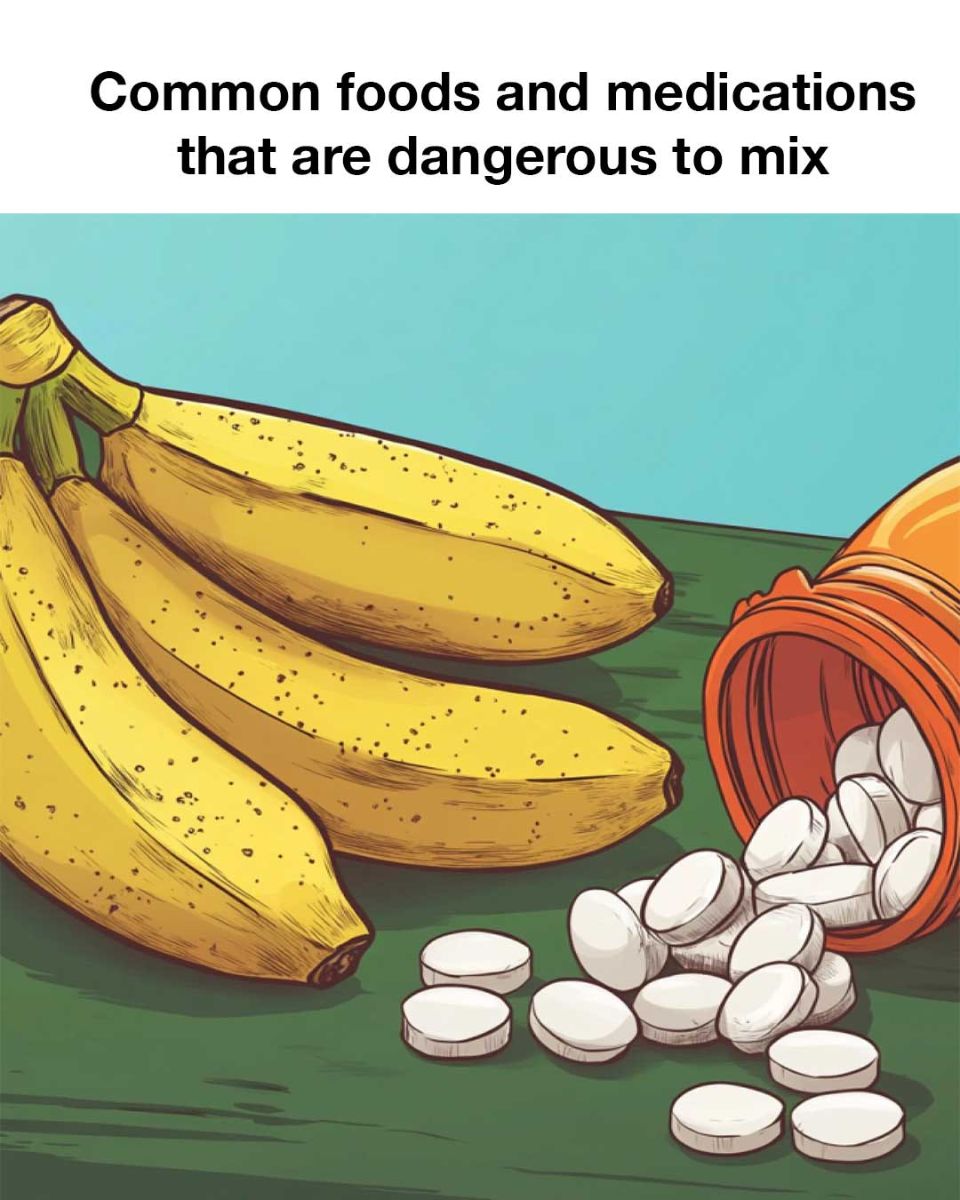2. Leafy Greens and Blood Thinners:

Good info! Did you know about this?
Leafy greens like spinach and kale are rich in Vitamin K, which can counteract the effects of blood-thinning medications like warfarin. This can make the medication less effective and increase the risk of blood clots.
3. Dairy Products and Antibiotics:
Calcium in dairy products can bind with certain antibiotics such as tetracycline and ciprofloxacin, making them less effective. It’s often recommended to avoid dairy around the time you take these medications.
4. Bananas and ACE Inhibitors:
ACE inhibitors are used to treat high blood pressure. These drugs increase potassium levels in the body, and consuming potassium-rich foods like bananas can lead to harmful hyperkalemia (high potassium levels).
5. Alcohol and Pain Relievers:
Alcohol can amplify the side effects of pain relievers like acetaminophen and non-steroidal anti-inflammatory drugs (NSAIDs). This can cause liver damage or gastrointestinal bleeding.
6. Chocolate and MAO Inhibitors:
Monoamine oxidase inhibitors (MAOIs), used for treating depression, can have dangerous interactions with tyramine, a substance found in chocolate. This can lead to a hypertensive crisis (dangerously high blood pressure).
7. Coffee and Antidepressants:
Coffee can reduce the efficacy of certain antidepressant medications like lithium. It also interacts with the absorption and metabolism of other drugs, which can limit their effectiveness.
8. Licorice and Blood Pressure Medications:
Licorice contains glycyrrhizin, which can deplete potassium levels and raise blood pressure, counteracting the effects of blood pressure medications.
9. Soy Products and Thyroid Medication:
Soy products can interfere with the absorption of thyroid medication, reducing its effectiveness and making it harder to manage thyroid conditions.
10. Cranberry Juice and Blood Thinners:
Cranberry juice can interact with blood thinners like warfarin, potentially leading to increased bleeding risks. The interaction may enhance the blood-thinning effects of the medication.
Understanding these interactions is crucial for anyone on medication. By being aware of these common food and medication combinations, you can take steps to avoid potentially dangerous situations and ensure that your treatments are as effective as possible.
